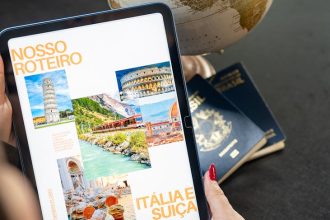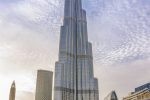Eco‑Tourism in UAE: Stunning Best Resorts
Eco‑Tourism in UAE: Stunning Best Resorts is becoming a headline attention‑grabber in the emirates’ rapidly evolving travel narrative. As the UAE pushes forward with Vision 2021’s sustainability targets, a new class of hotels and resorts are quietly redefining luxury by marrying opulence with ecological responsibility. From reclaimed wetlands and solar‑powered cabins to wildlife sanctuaries, these properties embody the nation’s ambition to become a global leader in sustainable tourism while still offering guests the grandeur they expect from a Gulf destination.
—
The Rise of Eco‑Tourism in the UAE
The UAE’s tourism sector is one of the fastest growing in the world, with Dubai and Abu Dhabi together contributing more than 30 % of global inbound arrivals by 2023 (Dubai Tourism & Visit Abu Dhabi Annual Report, 2023). Yet, this boom has not occurred without environmental cost. Rising water consumption, energy usage, and land development have prompted the UAE Ministry of Climate Change & Environment to adopt the ‘Green Abu Dhabi’ framework and the Dubai Sustainable Tourism Index (DSTI) in 2020. These policies have spurred both public and private sectors toward greener operations, making eco‑tourism a mainstream strategy.
What Is Eco‑Tourism? Definition and Key Principles
Eco‑tourism focuses on responsible travel to natural areas that conserves the environment, sustains the well‑being of local people, and involves interpretation or education. Core principles include:
– Low impact: minimize ecological footprint through renewable energy, waste reduction, and water conservation.
– Social benefit: support local communities through employment, cultural preservation, and local sourcing.
– Global sharing: provide learning opportunities about natural resource stewardship.
These principles align with the UAE’s National Sustainability Strategy, which calls for a 30‑percent increase in renewable energy by 2030 (UAE Energy Strategy 2050, 2019).
UAE’s Commitment to Sustainable Tourism—Key Policies and Accreditations
| Policy/Accreditation | Description | Impact |
|—|—|—|
| Energy Efficiency Regulations (DED) | Mandatory green building ratings for new hotels | Reduced electricity usage by up to 40 % |
| Dubai Sustainable Tourism Index (Dubai Tourism) | Ranking of UAE hotels on sustainability criteria | Provides benchmarks for eco‑tourism excellence |
| Dubai Green Building Regulations (DTCM) | Green rating for construction projects | Incentivizes sustainable development |
| UAE Climate Change and Abu Dhabi Sustainability Report (UAE Government) | Annual disclosure of ESG performance | Drives transparency in tourism sector |
These policies create a regulatory backdrop that nurtures the growth of eco‑tourism and certifies resorts that truly make a difference.
—
The Stunning Best Eco‑Resorts Across the UAE
Below is an exploration of five standout eco‑resorts that represent the fusion of luxury and responsibility, each boasting unique sustainability initiatives.
1. Al Marjan Island, Abu Dhabi – Sustainable Luxury
Set on a protected marine reserve, Al Marjan Island’s resorts present a rare blend of beachfront glamour and ecological stewardship. Key features include:
– Renewable energy mix: 60 % of the resort’s electricity comes from solar PV arrays covering 800 sq m.
– Zero‑waste policy: The resort’s waste‑to‑energy plant processes 90 % of its domestic waste, sending only a small fraction to landfill.
– Marine conservation partnership: Works with the Abu Dhabi Department of Culture and Tourism on coral restoration projects, benefiting both the resort’s guests and the coastline.
– Green chemistry: Uses biodegradable, non‑phthalate cleaning agents that meet UAE’s Environmental Quality Controllers’ guidelines.
According to the “Dubai Sustainable Tourism Index 2023”, Al Marjan consistently tops the chart for “Water Conservation” and “Marine Ecosystem Preservation”.
2. Saadiyat Island – The “Green” Balcony and Eco‑Friendly Accommodation
Saadiyat Island hosts several world‑class hotels that achieved LEED Platinum certification within the UAE. Tourism highlights include:
– Eco‑friendly architecture: Buildings incorporate triple‑layer glass to reduce energy loss, and skylights maximize natural daylight.
– Rainwater harvesting: 15 thousand cubic metres of rainwater are captured annually and reused for irrigation.
– Native landscaping: Drought‑resistant native shrubs and palm species replace water‑hungry exotic plants.
– Educational outreach: Offers guided tours that explain the island’s ecosystem, emphasising the importance of marine protection.
In 2022, Saadiyat Island hosted the United Nations Climate Change Conference, reinforcing its status as a model for sustainable tourism in the Gulf.
3. Dubai Safari Park & The Edge Resort – Wildlife Conservation Focus
Dubai’s newest wildlife project combines a safari park with The Edge Resort, a futuristic, multi‑facade hotel designed by a team of eco‑innovators.
– Zero‑emission transport: Visitors use electric safari vehicles, curbing the park’s 5 metric‑ton carbon footprint.
– Expansion on green roofs: The Edge’s rooftop gardens provide habitat for pollinators and act as cooling systems, lowering the building’s temperature by 3–4 °C.
– Local food sourcing: Hotels run an on‑site farm that supplies organic produce to all restaurants, ensuring freshness and reducing transport emissions.
Partnering with the Dubai Nature Development Authority allows the park to reintroduce 1,200 hectares of natural open land into a thriving community.
4. Desert Resorts – The Al Qudra Oasis Retreat
A surge of eco‑friendly desert resorts has emerged around Al Qudra. The Al Qudra Oasis Retreat exemplifies “The Desert as a Living Ecosystem”.
– Solar water heating: Stores heat for the construction of solar‑powered pools.
– Artificial wetlands: A man‑made wetland system filters naturally collected stormwater, supporting local bird species.
– Community engagement: Supports Bedouin tribes by selling handcrafted goods through a dedicated shop, giving farmers a percent of the revenue.
– Carbon offset program: Every stay adds a small contribution to tree‑planting initiatives in the Emirate of Sharjah.
Reports from the Dubai Federal Authority for Food Safety highlight that the resort’s food waste is composted and sold to community gardens.
5. Alila Jumeirah – Experimental Sustainable Design
Alila Jumeirah, located on Jumeirah Bay, celebrated its 18th year as a pioneer in sustainable luxury. Innovations include:
– Prefabricated modular construction: Reduces on‑site waste and saves 40 % of construction materials.
– Built‑in air coolers: A network of chilled water systems that require no refrigerant, improving energy efficiency.
– Eco‑roof: Supports native plant species while reducing the building’s temperature by up to 8 °C.
– Water‑free kitchen: Uses camel milk‑themed, low‑water cuisine and a desalination plant using reverse osmosis to provide potable water.
Through the “Dubai Sustainable Tourism Rank” (2024), Alila Jumeirah sits firmly in the top 3 for “Energy Efficiency” and “Water Management”.
—
How These Resorts Are Leading the Charge
Sustainability is not just a headline but a measurable practice. Below are areas where the best eco‑resorts demonstrate leadership.
Energy & Water Efficiency
– Solar farms: Many resorts host solar arrays covering thousands of square metres, often coupled with battery storage to supply power all night.
– LED retrofit: Lighting accounts for 25 % of hotel energy; switching to LEDs can reduce consumption dramatically.
– Water reuse: Grey‑water systems treat and recycle up to 70 % of all water used for irrigation and sanitation.
Waste Management & Circular Economy
– Zero‑waste initiatives: Composting organic waste gets locally‑grown produce; packaging is largely biodegradable.
– Plastic‑free zones: Operations limit single‑use plastics; guests are encouraged to bring reusable items.
Community Engagement & Conservation Programs
– Education hubs: Resorts run ‘Eco‑days’ for local schools, teaching kids about biodiversity.
– Employment opportunities: Programs train and hire local residents, often with a focus on youth and women.
Certification & Transparency
– Resorts publish annual Environmental, Social, and Governance (ESG) reports, providing metrics on carbon emissions, water use, and community impact.
These metrics show that sustainable tourism is no longer a niche but a strategic imperative in the UAE.
—
Tips for Travelers Wanting an Eco‑Focused Stay
Whether you’re a seasoned eco‑tourist or a first‑time visitor, these practical steps help you enjoy the destination responsibly.
– Book through accredited eco‑hotels: Look for ratings from Dubai Sustainable Tourism Index or LEED Platinum.
– Travel light: Reducing luggage lowers carbon emissions, especially on flights and ground transport.
– Use public transport or shared rides: Dubai’s Metro and bus system are reliable and eco‑friendly.
– Participate in local conservation activities: Many resorts offer guided beach clean‑ups or tree‑planting sessions.
– Support local businesses: Buy food, souvenirs, or services directly from local vendors or community farms.
– Re‑use or recycle: Make it a habit to use refillable bottles and avoid single‑use items.
– Offset travel emissions: Many hotels now offer carbon offset programmes; purchase a credit to compensate for your stay.
These small actions multiply at scale, making a meaningful contribution to the UAE’s environmental goals.
—
The Future Outlook: Trends and Opportunities for Eco‑Tourism in the UAE
The UAE’s trajectory towards sustainable growth is unmistakable. What does the future hold for eco‑tourism?
– Increased green building regulation: The Dubai Green Building Regulations 2024 now mandate a minimum 40 % renewable energy contribution for any new hotel.
– Smart‑city integration: IoT sensors monitor water and energy performance in real time, allowing instant optimisation.
– Nature‑based experiences: Growing demand for “nature‑infused” wellness retreats will see more desert and coastal eco‑resorts emerging.
– Collaborative conservation: Tourism operators increasingly partner with NGOs and government campaigns to protect endangered species, such as the reverse‑migration of the Arabian oryx.
– Technology‑driven transparency: Blockchain‑enabled sustainability certificates are being introduced for all major resorts, giving guests verifiable proof of environmental claims.
These trends suggest that eco‑tourism will not only continue to thrive but become integral to the UAE’s cultural and economic identity. As the nation moves towards being a leading sustainability hub, travellers who prioritize responsible booking will find a wealth of choices that combine luxury and legacy.
—
In summary, eco‑tourism in the UAE isn’t a passing fad—it’s a refined, strategic pivot that intertwines progress with preservation. By offering cutting‑edge resources, innovative architecture, and community‑focused programming, resorts across Abu Dhabi, Dubai, and the desert frontier demonstrate that sustainable luxury is both possible and profitable. With regulatory support, bold investment, and a growing pool of eco‑conscious travellers, the “Stunning Best Resorts” of the UAE promise to remain at the forefront of responsible hospitality for years to come.









